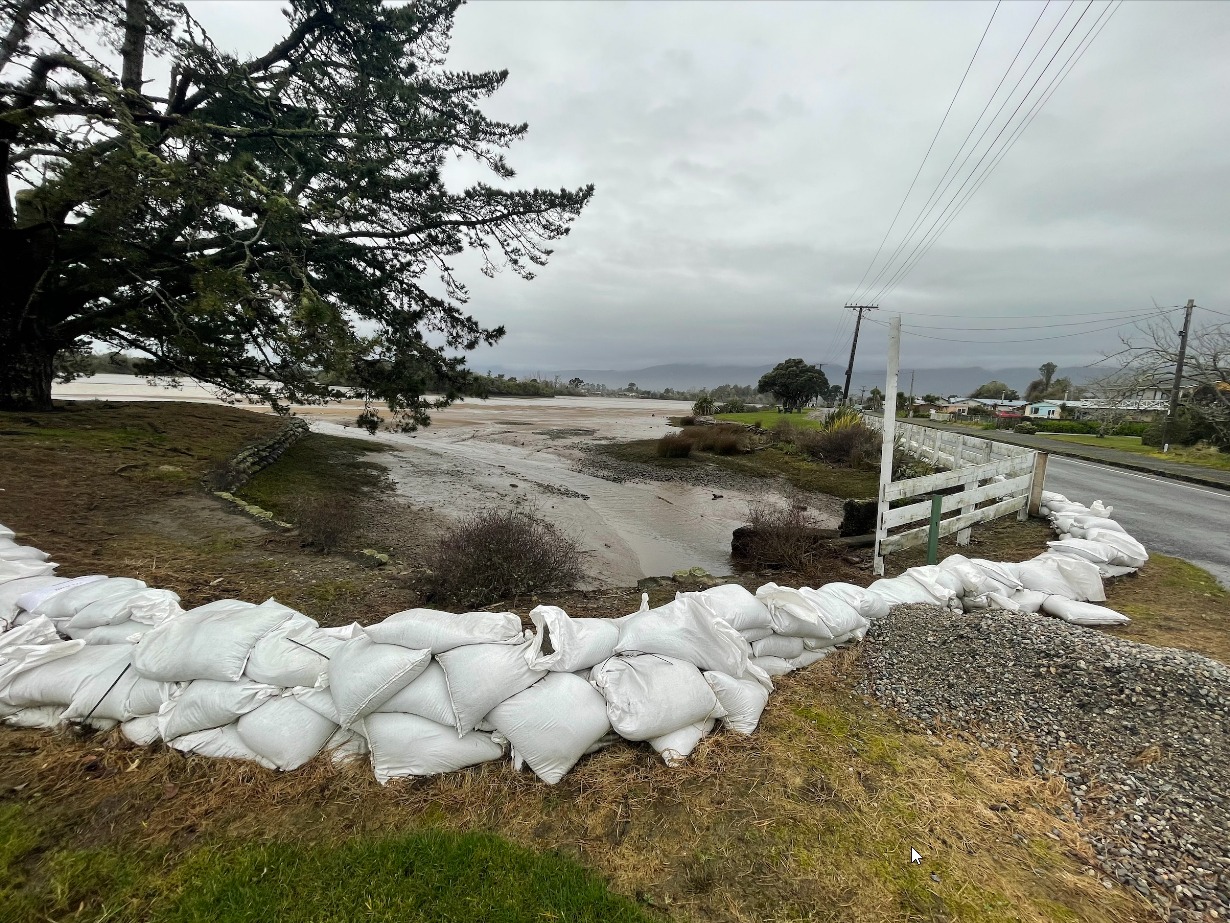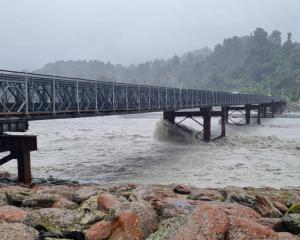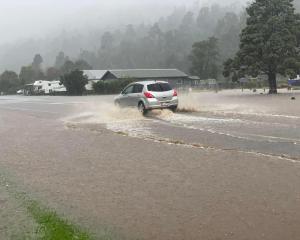
Niwa has warned of a "48-hour deluge" for the northern and western South Island, where some locations could see two to four times their normal August monthly rainfall.
A state of emergency has been declared after severe weather warnings were yesterday raised to red for Buller and Westland until Thursday afternoon.
MetService issued the red warning - reserved for the most extreme weather events where significant disruption is expected - for Westland and Buller where up to 500mm and 550mm of rain is expected to accumulate, respectively.
Anxious and stressed residents have started preparing their homes with sandbags and other measures in Buller.
Buller District deputy mayor Sharon Roche told TVNZ's Breakfast programme: "At this stage we're just asking residents to be prepared. A lot of them have already started to sandbag and ... prepare their homes.
"At this stage, there [is] no plan of evacuation. But obviously, if people feel safer by moving out to friends or family to higher ground, then absolutely we would encourage that."
Roche said surprisingly, there was not much rainfall overnight.
"There were times when there were some heavy showers then other times when there was no rain at all."
One advantage authorities had, she said, was time. Extra pumps had been brought in, extra support and had diggers out working in critical spots known to flood in the past.
"We're well prepared - as prepared as we can be."
Roche said they are due to get a briefing and update on the situation this morning.
Asked how residents were feeling, she said: "People are anxious and stressed - there's no doubt about that."
That was particularly the case for those whose homes or properties had been badly damaged in previous weather events, she said.
The West Coast of the South Island is one of the regions in line for the "atmospheric river" weather event, which one expert says could be more damaging than otherwise as it comes after an exceptionally wet winter.
Atmospheric rivers are large and extremely high plumes of moisture that move in the atmosphere from the tropics to the mid-latitudes, where New Zealand is located.
When they hit another weather event or New Zealand's mountainous terrain, vast amounts of water vapour is squeezed out, falling as heavy rain or snow, Niwa meteorologist Tristan Meyers said.
Experts say it is likely this weather event is influenced by climate change.
Large parts of the rest of the country are also expected to get drenched by the extreme weather event - including Northland, Waikato, Taupō, the Tasman District, Marlborough and Mount Taranaki.
Niwa meteorologist Tristan Meyers said two bursts of rain were expected, from Tuesday-Thursday and then again from Saturday-Sunday, affecting primarily the South Island.
"All up, over a month of rainfall could fall for large parts of the West Coast, Canterbury High Country, Tasman, Marlborough and Nelson.
"This will lead to slips, and possibly flooding for some South Island rivers."
It would also melt snow which could exacerbate riverine flooding in some areas, he said.
Meyers said heavy rain was also headed for parts of the North Island, particularly Northland, Taranaki and Bay of Plenty, with the most intense downfall expected on Wednesday.
University of Otago senior lecturer in geography Dr Daniel Kingston said although this specific weather event had not been analysed regarding the influence of climate change, it was "more than likely playing a role".
Average air temperature had warmed by slightly more than 1degC over the past century and as the atmosphere warmed it could hold more moisture, increasing the likelihood for extreme heavy rainfall events such as this.
"Sea surface temperatures around New Zealand are also warmer than average right now, which can further amplify these sort of events."
Kingston said this event could be more damaging because it comes on top of an already exceptionally wet winter.
July was the wettest on record while more than 40 locations have experienced record or near-record rainfall, he said.
"The ground is already very wet with limited capacity to absorb further rain."











